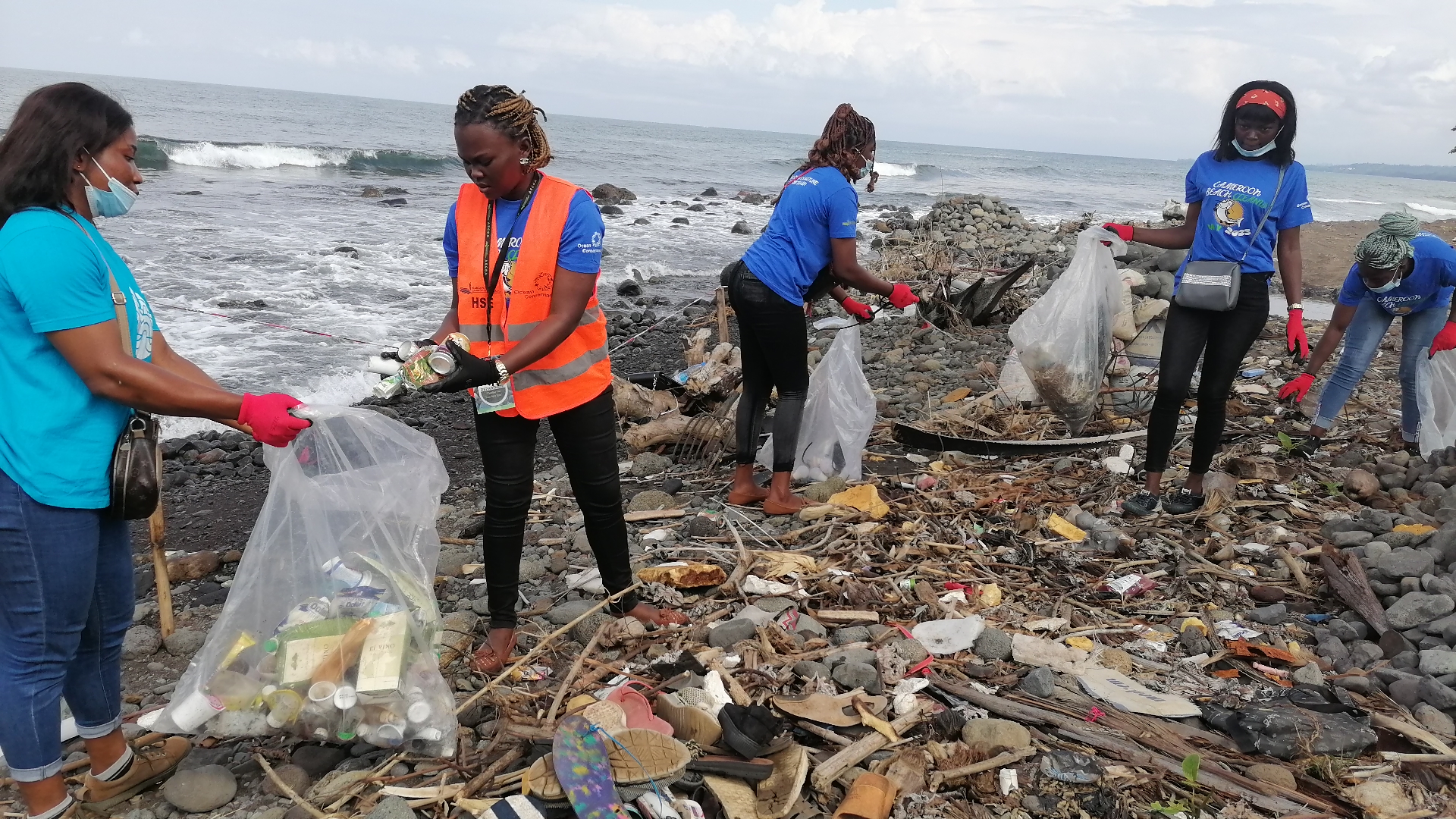
Boris-Karloff Batata

Boris-Karloff Batata
On the busy streets of the Buea Municipality in the southwest region of Cameroon, with an estimated 1000 taxis plying the roads, it is common to find passengers and drivers throwing plastics through their taxi windows. Unfortunately, when it rains, this rubbish is transported from the city streets to the Atlantic Ocean.
On June 10th, 2023, dozens of young people under the Association for Community Awareness (ASCOA) suited up to take on marine pollution. Dressed in pants, shoes and gloves adapted to the activity, the volunteers converged at one of the active junctions in Buea Municipality ready to set off for Limbe, a coastal city in Cameroon to pick up marine debris along the Limbola Beach.

Baptist missionaries founded Limbe, formerly called “Victoria,” in 1858. The town lies along Ambas Bay in the Gulf of Guinea, at the southern foot of Mount Cameroon, just south of Buea. With its nearly 400 miles (650 km) of coastline, the beaches of Limbe are one of the primary reasons the area is a favorite tourist destination in Cameroon.
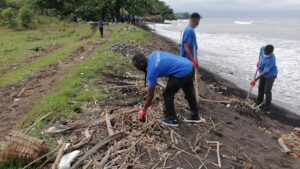
ASCOA is a charitable non-profit organization with headquarters in Cameroon, West Africa and offices in the U.S., U.K. and Kenya. Thus far, ASCOA has engaged about 1470 volunteers collecting 1, 451,927 assorted items (927 tons).
Leading these volunteers is the founder and Chief Executive Officer of ASCOA, Linus Ayangwoh Embe. According to Embe, “Our ocean is very important because most of the fish we eat come from the ocean. Even if you (don’t live in an) ocean community, you need to support this ocean because you eat things coming from the ocean.”
Aside from being a tourist destination, the black sandy beaches of Limbe also serve as a source of income for the local population. Ngwatem Hansen makes $13 USD (FCFA8000) per day as a driver, transporting stones mined along the Limbola Beach.
“I believe the water is important because it gives us money. For instance, I make money from here and even for those loading the stones at the end of the day, we can afford food to eat at home,” Hansen said.
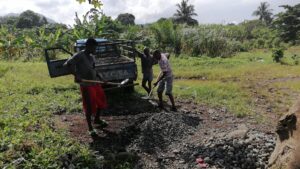
Watching the waves from the beach moving back and forth, one can see chunks of assorted debris all along Limboa Beach. Fortunately, today the group of young volunteers are on the ground to pick up these marine pollutants in order to keep the beach clean.
According to the Health Director of ASCOA Anye Akuma, the group picked up about 300 kilograms of waste within just two hours. The group then categorized their haul into different types of waste.
Tetang Ana, a coordinator for the project, listed the items they collected along the coastline, saying, “Some of the items which we have been able to pick are food wrappers, take-away plastic containers, leads, fishing nets…” and the list continues.
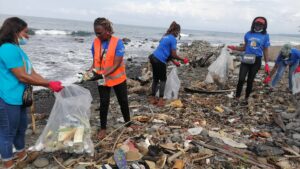
According to Akuma, they classify the waste for accountability and for further action. “We categorize waste so that we can upload (the data) to a national website so that companies can see what they are dumping into the environment. (The companies) can come up with recyclable materials that will be good instead of using non-recyclable materials,” he said.
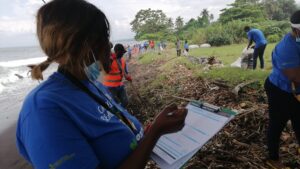
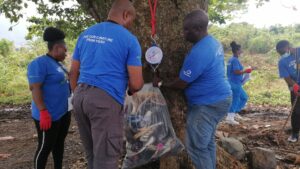
In order to widen their impact, ASCOA is organizing a national conference on coastal cleanup in Cameroon in collaboration with the Ministry of Environment, Nature Protection and Sustainable Development. The event involves different stakeholders in the environmental sector, including government representatives.
The Project Coordinator Mukete Samuel, said they are trying to ensure that most beaches in Cameroon have trash-free coastlines. According to Samuel, many beaches that could become tourist venues are currently not used as such due to large amounts of rubbish present.
“If you go to some of these beaches to see good hotels, you rather find them abandoned,” Samuel said. “So the purpose of this event is to make sure that those beaches are clean and sustainable.”
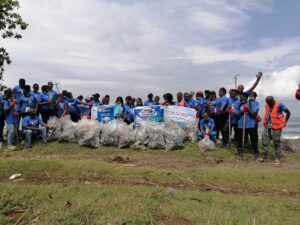
Thus far, the young volunteers have cleaned several beaches including Idenau, Etisa, Limbola, Bobende, Bota, Down Beach 1 and 2.
As the young environmentalists set an example for others to follow, their initiative serves as a powerful reminder that the fight against marine debris requires collective action and an unwavering commitment to preserving our planet’s precious ecosystems.